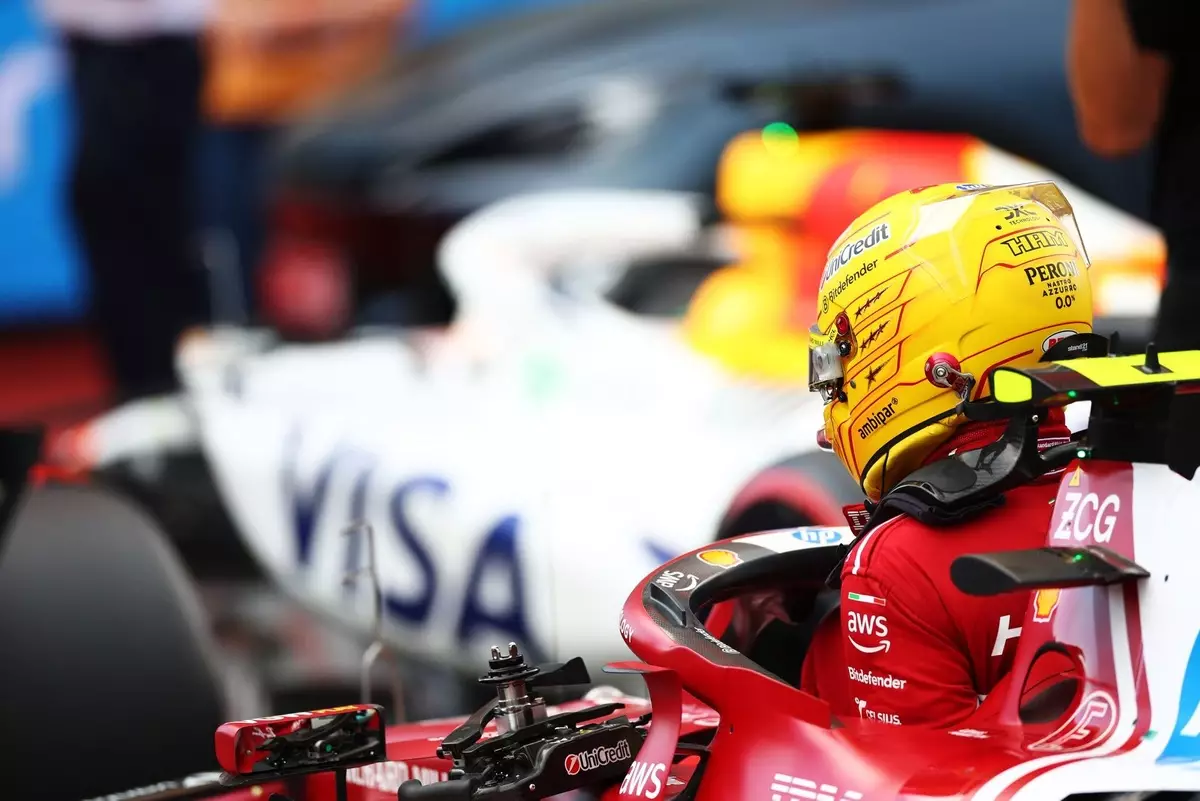The Harsh Reality of Racing Hamilton’s Disappointment at the Spanish Grand Prix
There’s something so exhilarating about the world of Formula 1. It’s a place where skill, strategy, and technology collide at breakneck speeds. But it’s not always glitz and glamour, even for someone as accomplished as Lewis Hamilton. Recently, after the Spanish Grand Prix in Barcelona, Hamilton opened up about his frustrations, calling it one of the “worst” races of his career. For a seven-time world champion like Hamilton to express such disappointment speaks volumes about the challenges he faced during this race.
In a sport where every millisecond counts, finishing sixth was certainly not what Hamilton had hoped for. The disparity between his promising start and his eventual finish highlights the unpredictable nature of Formula 1. After making a strong move past his teammate George Russell at Turn 1, things quickly turned sour as he struggled with pace throughout the race. The pitstop cycles were particularly challenging, leaving him visibly frustrated and trailing behind competitors when he had initially shown such promise.
Key Takeaways
- The complexities and unpredictability of F1 racing are evident in every race.
- Team dynamics and strategy play crucial roles in individual performance.
- The psychological aspect of racing can impact drivers as much as physical performance.
The Pitfalls of Strategy and Performance
One key moment during the race was when Ferrari instructed Hamilton to let his teammate Charles Leclerc pass. Such team orders are common, but they can be particularly disheartening for competitive drivers like Hamilton. His struggles with rear grip were evident and became a significant issue during pitstop exchanges, emphasizing the strategic pitfalls faced by the team. It’s moments like these that remind us how intricate and layered F1 races truly are, often extending beyond just pure speed.
While it’s easy to blame car performance or strategy alone for disappointing results, there’s also a psychological component at play. Post-race interviews revealed a determined yet disappointed Hamilton. His terse responses indicated frustration—not just with the outcome but also with the broader performance capabilities of his vehicle. This situation places him in an unfamiliar position as he navigates these challenges within his storied career.
Leclerc’s Redemption and the Contrast
In stark contrast to Hamilton’s experience, Charles Leclerc emerged from the same race feeling optimistic after securing a podium finish. Starting from seventh place, Leclerc’s journey to third was marked by strategic decisions, adaptability, and perhaps a touch of luck. Rather than focusing solely on his achievement, Leclerc emphasized his team’s potential for growth—a mindset that contrasts sharply with Hamilton’s current reflections on vehicle performance.
Leclerc’s comments highlight an essential truth about racing: success often hinges on both individual effort and collective team strength. As Hamilton grapples with questions about his car’s capabilities, Leclerc shifts focus towards future improvement and team dynamics. This juxtaposition underscores how intertwined individual successes and team narratives are within Formula 1.
Learning from Disappointment
For Lewis Hamilton, this race goes beyond mere frustration; it raises critical questions about his career’s future trajectory and Mercedes’ path forward. Although finishing sixth might tempt despair, it also offers an opportunity for reflection and change. Every great athlete faces adversity—it’s their response that ultimately defines their legacy. Despite feeling weary, Hamilton’s determination suggests he’s ready to tackle these challenges head-on.
As he gears up for the next race in Canada, lessons learned from Barcelona will undoubtedly shape both his approach and strategy moving forward. Disappointment often fosters growth—and we can only imagine how Hamilton will channel this experience into future races. In racing—and life—it’s not just about celebrating victories but also overcoming trials along the journey towards excellence.
Final Thoughts
The world of Formula 1 is as much about resilience as it is about speed or skill. Lewis Hamilton’s experience at the Spanish Grand Prix serves as a poignant reminder that even legendary champions face setbacks along their path to greatness. Yet it’s through these challenges that true character emerges—the unwavering desire to push boundaries while continually striving for improvement sets apart those who leave lasting legacies in this high-stakes arena.
As fans eagerly anticipate upcoming races on this thrilling circuit filled with unpredictable twists around every corner—one thing remains certain: we’ll be watching closely as Hamilton navigates each new challenge ahead with tenacity unmatched by many others before him.
Formula 1
Lewis Hamilton
Spanish Grand Prix
Racing Strategy
Motorsport Psychology


Leave a Reply